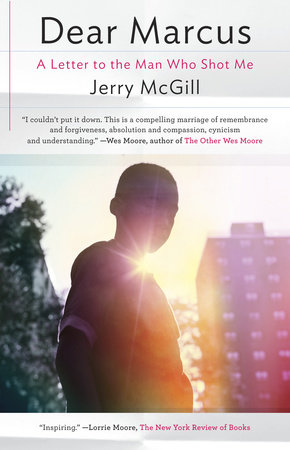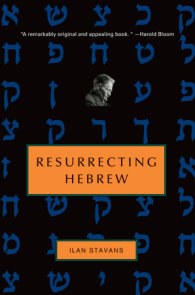TEACHING GUIDE
NOTE TO TEACHERS
Please click on the PDF link at the bottom of this page to download the Teacher’s Guide.
ABOUT THE BOOK
Jerry McGill was thirteen years old, walking home through the projects of Manhattan’s Lower East Side, when he was shot in the back by a stranger. Jerry survived, wheelchair-bound for life; his assailant was never caught. Thirty years later, Jerry wants to say something to the man who shot him.
With profound grace, brutal honesty, and devastating humor, Jerry McGill takes readers on a dramatic and inspiring journey—from the streets of 1980s New York, where poverty and violence were part of growing up, to the challenges of living with a disability and learning to help and inspire others, to the long, difficult road to acceptance, forgiveness, and, ultimately, triumph.
ABOUT THE AUTHOR
Jerry McGill is a writer and artist. He received a BA in English literature from Fordham University in the Bronx and a master’s degree in education from Pacific University in Oregon. He lives in Portland, Oregon.
GUIDED READING AND DISCUSSION QUESTIONS
1. Why do you think Jerry McGill opens Dear Marcus with the poem, “You, darkness, out of whom I stem” by Rainer Maria Rilke? What do you think “darkness” symbolizes in the poem and in the book? Does the poem take on a different meaning for you after you have read the entire book?
2. What was your reaction to the first fictionalized film scene from what Jerry refers to as “the Movie of My Life”? What does this fictionalized interaction between Doreen and Evelyn tell you about their real relationship? Throughout the book, what do these imagined movie scenes tell you about Jerry’s life?
3. Why does the author decide to write to Marcus thirty years after the shooting incident? What kind of resolution is Jerry looking for, if any? If you were asked to write to someone from your past who had hurt you (whether physically or emotionally), to whom would you write and what event would you write about? Do you think that if you wrote to this person it would help you to forgive them or at least bring you a sense of closure about what had happened? Why or why not? Jerry writes, “It’s a wonderful gift having a creative mind. But sometimes it can be a curse as well.” How does imagining various scenarios and outcomes help Jerry heal, and how does it prevent him from healing? Has your imagination ever helped you heal from a traumatic or negative incident? If so, how?
4. Why does the author give his unidentified shooter the name Marcus? Why does he decide to identify the shooter as a black man? After the shooting, why does the author start using the name Jerry, instead of continuing to go by his given name, Jerome?
5. How does Jerry describe his upbringing in the Brooklyn neighborhood of Brownsville? Why and how does he describe the difference between the darkness and the light in Manhattan and in Brooklyn? As a young person, Jerry witnesses a man being stabbed to death and recalls learning the lesson that “Life is fleeting. It can leave any of us at any moment of any day.” Do you remember when you first learned about death? If so, when and where was it? How can seeing a traumatic incident happen to someone else influence how a person lives his or her own life?
6. Why does Jerry feel relieved when his mother tells him that his father has been murdered? Why was he afraid of his father? How do you think Jerry’s relationship with his father affected both his life and the writing of Dear Marcus?
7. Why does Jerry experience a sense of shame after the shooting? Do you think the incident could have been avoided if he had stayed home on New Year’s Eve? What emotions do you think Jerry’s mother experienced as a result of the shooting? Have you ever replayed a situation over and over again in your mind, wondering what alternate results could have occurred if you had just done something differently? Were you able to eventually stop wondering about what might have happened, and accept the real outcome?
8. Why does Jerry wonder if Marcus has ever been loved or fallen in love with someone? What does it really mean to love your enemy? Have you ever felt love for an enemy or wondered if they have ever experienced love?
9. How did Jerry react after two white boys yelled racial slurs at him and his friends? What prompted Jerry to threaten the white boys with a knife? Why is Jerry still haunted years later by the younger boy’s face? How did this incident change how Jerry thought about violence and whether or not to inflict violence on someone else? Have you ever had a personal experience with violence? If so, has that experience impacted how you treat other people now?
10. What difficulties does Jerry encounter in romantic relationships? If you believe you are not worthy or good enough, how does this affect your relationships with other people? Jerry writes that he would rather hurt someone than be the person who gets hurt in a relationship. Have you ever used this defense mechanism? How did Jerry eventually improve his self-esteem and begin to feel secure with himself? How do you think this affected his relationships with others?
11. Jerry explains that he acknowledged and thanked his caretakers at the hospital by extending care and kindness to others, and then going on to “lead a full and meaningful life.” How can caring for others lead to the rise and spread of even more kindness? Have you ever seen kindness spread in this way?
12. What did Jerry learn from his experiences at camp in upstate New York? Why did he lose contact with the Jones family, with whom he stayed while at camp? Do you think his relationship with this family would have been different if the shooting had not taken place? Why or why not?
13. Jerry writes that he can no longer be angry with Marcus because, “It takes a lot of energy to stay angry and I want to save that energy for something great. I’m over all that darkness.” Do you think Jerry really was able to truly let go of his anger? Why or why not? Have you ever had to move on from or let go of anger in order to focus your energy on more positive aspects of your life? If so, how did you accomplish this?
14. Why did Jerry believe that he would be able to return to his regular life immediately after the incident? In the aftermath of the shooting, why did he think counseling was a waste of time? How does Jerry eventually come to understand and accept that the incident will affect him for the rest of his life? What emotions do you think he experienced when he finally realized that his life had changed permanently in such a profound way?
15. Why is Jerry afraid of becoming dependent on his mother and sister after he is paralyzed? Why did Jerry feel a sense of resentment and animosity toward his mother after he was shot? How does the incident change his relationship with his younger sister? Do you believe that someone with a disability cannot fulfill the responsibilities of being a big brother or big sister? Why or why not?
16. Why was Debra hurt when Jerry told her that he didn’t think any of the nurses at the hospital cared about him? How did Debra’s kindness change how Jerry thought about and saw other people’s suffering? How did his time in the hospital help Jerry explore the emotions of understanding and affection more deeply? Why does Jerry thank Marcus for this experience?
17. Why does Jerry commemorate the anniversary of the day he was shot? Do you think this recognition of that day is important? Why or why not? Have you ever been able to turn the anniversary or memory of a negative incident into something to be celebrated, or at least acknowledged? How can a change in perspective also change how a person experiences or understands his or her everyday life?
18. Why does Jerry decide to go back and visit his old neighborhood? Why does he feel a sense of pride while retracing his steps and visiting the streets from his past life? How has the neighborhood changed? Have you ever returned to an impactful site from your past? Why did you decide to return or not?
19. Why is Jerry committed to changing people’s attitudes and perceptions about people with disabilities? Has this book changed how you think about people with disabilities? What questions did it raise for you? Did the book affect how you think about your own physical abilities or limitations?
20. Jerry writes about his gratitude and appreciation for his life, and he also writes about his forgiveness of Marcus. Jerry writes to him: “What you did was wrong. Inarguably, unequivocally improper.” How was Jerry able to forgive Marcus while still condemning his actions? Have you ever forgiven someone in this way, or been forgiven by someone else in this way?
ABOUT THIS GUIDE’S WRITER
Rachael Hudak is the author of discussion guides for several books, including Just Mercy: A Story of Justice and Redemption by Bryan Stevenson, Between the World and Me by Ta-Nehisi Coates, and Evicted: Poverty and Profit in the American City by Matthew Desmond. Rachael has led hundreds of creative and educational workshops in prisons and jails in Michigan, Illinois, and New York, and has worked on anti-violence initiatives throughout the United States. Rachael holds an Executive MPA from New York University and a BA in English Language and Literature from the University of Michigan. She is the director of the Prison Education Program at New York University.
×
Become a Member
Just for joining you’ll get personalized recommendations on your dashboard daily and features only for members.
Find Out More Join Now Sign In



















